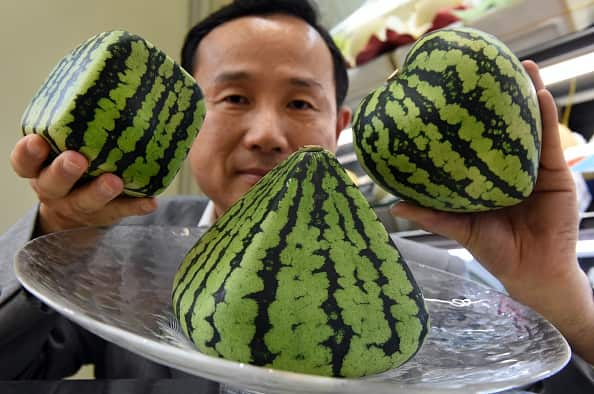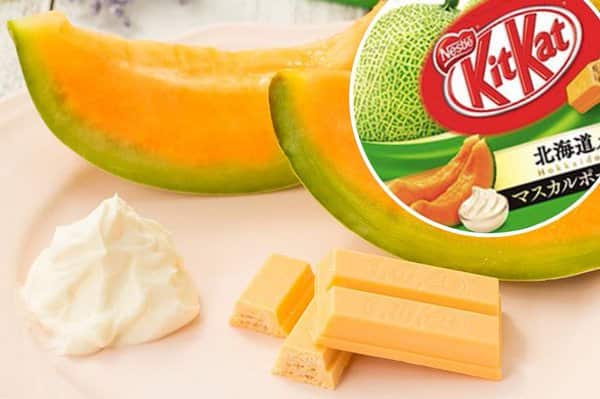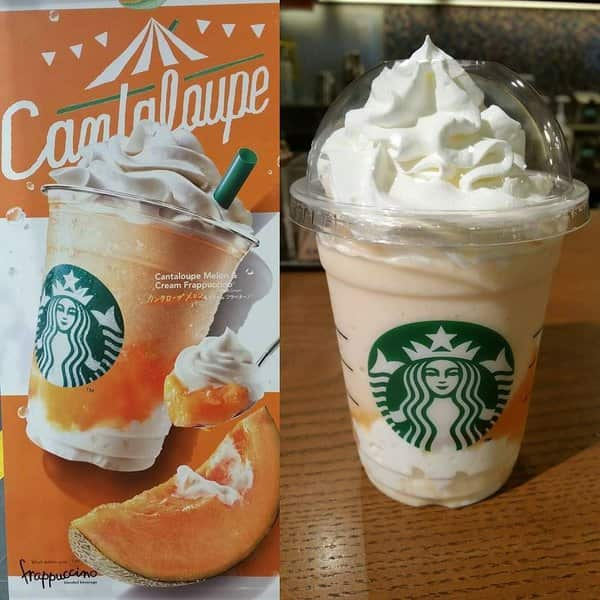Slices of rockmelon are often the last to be eaten on a fruit platter in Australia, but in Japan the orange-fleshed melons are big business.
Giving beautiful fruit as a gift is a common custom in Japan, and none is more coveted – and expensive - than the rockmelon's close cousin the muskmelon, which is often referred to as the “king of fruit”.
At specialist fruit gift shops they sit nestled in individual wooden crates, and can cost as much as ¥16,000 (AUD$198).
There are also square, pyramid and heart-shaped watermelons which will set you back thousands of yen.

Then there’s the eye-wateringly expensive Yubari King, a rare breed of melon that grows only once a year and which can sell for the price of a new car – ¥1.3million (AUD$16,000) or more.
There’s no doubt the melons are pricey but they might just be the best you’ve ever tasted.
Michie Akahane Supaman, a language consultant at The Japan Foundation in Sydney, says the melons are difficult to grow and can only be cultivated in certain areas of Japan, making them a very special traditional gift.
"They [have long been] very popular as an expensive gift, before other expensive fruits became available for sale," she tells SBS.
The highly-coveted fruit are grown in computer-controlled greenhouses, where they are hand-pollinated.
Growers then select only one melon on each plant so that all the nutrients, sugar and juice are concentrated in the chosen fruit.
Akahane Supaman remembers her family being given a muskmelon when she was younger.
"My father was given one in a beautifully decorated wooden box and my family tasted it. They were about $100 each at that time, back in the 1980s," she says.
And for those people who have never tasted one, just what are they missing out on?
"Even if I offer two kinds of melon on separate plates without explaining which one is which, people will definitely prefer the muskmelon," says Akahane Supaman.
"Its fragrance, juiciness and sweetness are very distinctive."
The Japanese fondness for melons has led to some well-known companies releasing melon-flavoured products in Japan.
Nestle have offered up an unusual flavour combination in their melon and marscarpone Kit Kat, which they say “features a mild sweetness of Hokkaido melon and a fresh taste of mascarpone cheese” that creates a refreshing snack.

And Starbucks is currently offering a cantaloupe melon and cream frappuccino, featuring a rich milk-flavoured panna cotta cream and a melon sauce containing pieces of actual cantaloupe mixed with the cream-based frozen frappuccino component made with real cantaloupe juice, and topped with whipped cream.

SBS Food is a 24/7 foodie channel for all Australians, with a focus on simple, authentic and everyday food inspiration from cultures everywhere. NSW stream only. Read more about SBS Food
Have a story or comment? Contact Us

